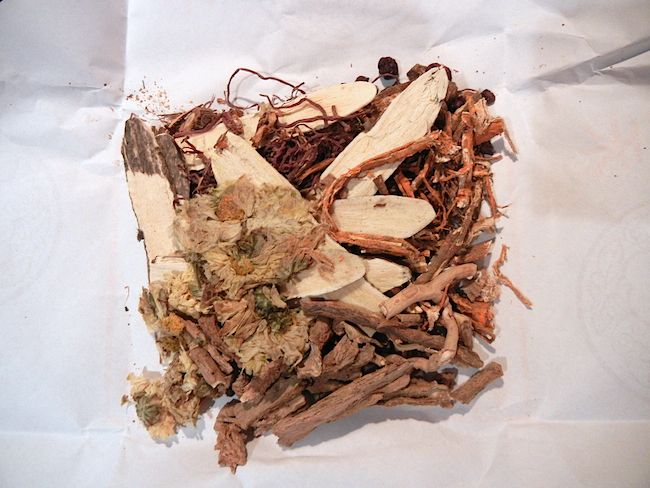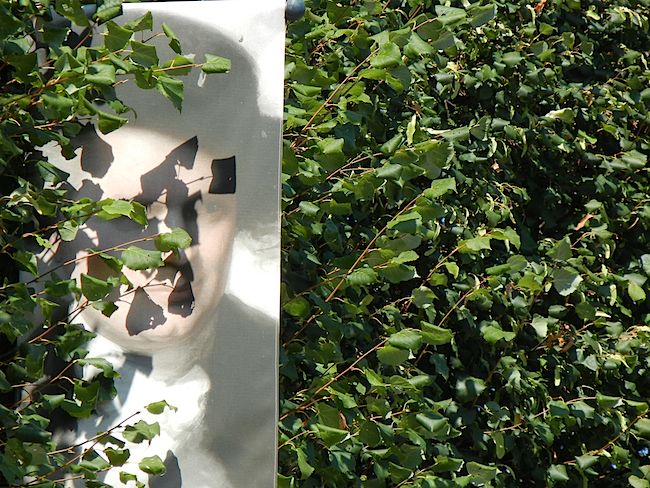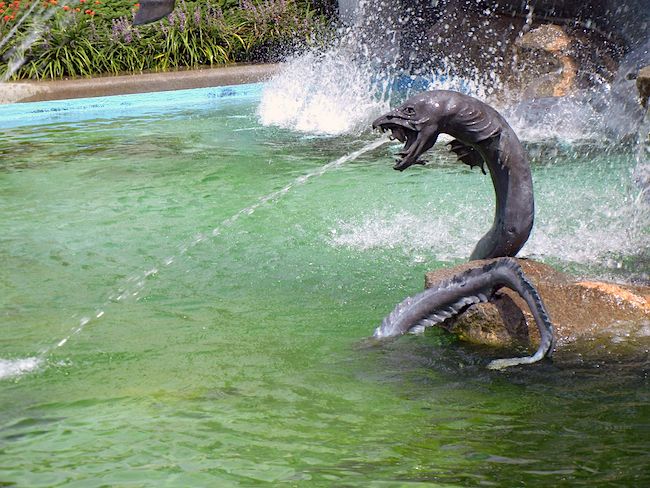
A packet of Chinese medicinal herbs, before cooking.
The most truly unique aspect of Chinese culture - and the one with the most powerful legacy - is the Confucian examination system with which the Son of Heaven's empire was staffed with civil servants over the best part of two millennia. The Imperial examinations represented a remarkable attempt to create an aristocracy of learning, which in itself represents a remarkable advance over the warrior and hereditary aristocracies that dominated in the rest of the world. The Chinese examination system, archaic, laborious and daunting as it may have been, was nevertheless, a glorious attempt at intellectual meritocracy.
"The most truly unique?" Hmm. What a phrase. And - well - who knows about that? Though, it is remarkable that the Chinese created an aristocracy of learning because they wanted those who governed to be scholars. Here is a link to the essay.
The men who didn't pass the exam had the option of going into medicine, which was seen as a lesser occupation. Those who had to let go of their hopes and dreams to become bureaucrats brought to the field of medicine a huge body of knowledge about Chinese culture. To prepare for the imperial exams, they spent many years studying poetry, history, philosophy, math and so on and so on.
Chinese medicine is complete because those who became doctors, for a couple of thousand years, were so well rounded in their knowledge. The great Chinese doctors passed their comprehensive perspective down to their students. Chinese medicine is truly holistic and very refined.
Medicine in the western world is mechanical and near-sighted because we train doctors to function as if they are no more than technicians for the machine of the body. Who would think to suggest to a pre-med student that the study of poetry could help them be better doctors?
I just read a study that showed - "proved" - patients fare better when they are treated by doctors who feel empathy for them. They had to do a study to prove this? I guess so!
Western medicine is great emergency medicine. I'm very grateful for its existence. But it doesn't treat the soul. It doesn't treat the whole person. Western medicine has no poetry in it. I am wary of it, which is why I'm just now cooking the batch of herbs pictured above and why I will cheerfully drink the tea even though it no doubt is going to taste absolutely horrible. This terrible tea will help not only the machine of my body, but my soul, too. The healing will be not only corporeal, but soulful as well.
Wouldn't it be great if all those who wished to work in the U.S. government were required to assiduously study our culture, history, arts, music and philosophy in the same way the ancient Chinese did? I think we would be governed very differently, don't you? But that's a topic better suited to my personal blog.
Be well in body, mind and spirit. Shalom.


